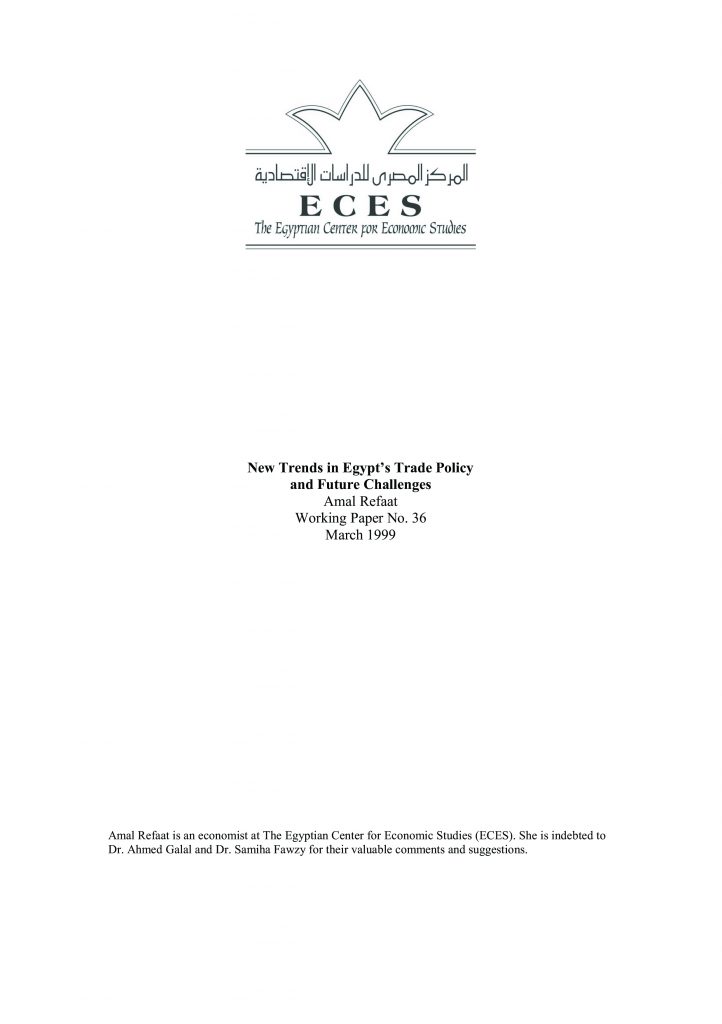Abstract:
This paper analyzes Egypt’s trade policy reforms since 1980 to evaluate the general openness of the economy. Changes in tariffs, additional taxes and subsidies, non-tariff barriers and the exchange rate system are surveyed as indicators of liberalization trends in the economy. The analysis extends beyond the status quo and considers the future of trade liberalization in light of Egypt’s involvement in multilateral, regional and bilateral trade agreements with the European Union, the United Sates, Eastern and Southern Africa, and Arab countries. The paper identifies the challenges to future liberalization of Egypt’s trade, including the prospect of strong competition abroad. Subcontracting, maintaining a responsive exchange rate, improving the indicators of competitiveness are among the recommendations for increasing Egypt’s integration in global trade.

